|
Developing Confidence or self-esteem is often a topic in sessions with teens. In a developmental stage where they are forming their identity, values and becoming more and more aware of the complexity of human relationships it's a topic we often circle back to. But, as a therapist I find it's a slippery one, a concept that doesn't lend itself to explanation. This video, along with it's practical tips is well done. Take a look, for yourself, or for your teen. Lesson made in partnership with the Always #LikeAGirl campaign, animation by Kozmonot Animation Studio.
0 Comments
"The world is so big, so complicated, so replete with marvels and surprises that it takes years for most people to begin to notice that it is, also, irretrievably broken. We call this period of research “childhood."
There follows a program of renewed inquiry, often involuntary, into the nature and effects of mortality, entropy, heartbreak, violence, failure, cowardice, duplicity, cruelty, and grief; the researcher learns their histories, and their bitter lessons, by heart. Along the way, he or she discovers that the world has been broken for as long as anyone can remember, and struggles to reconcile this fact with the ache of cosmic nostalgia that arises, from time to time, in the researcher’s heart: an intimation of vanished glory, of lost wholeness, a memory of the world unbroken. We call the moment at which this ache first arises “adolescence.” The feeling haunts people all their lives. Everyone, sooner or later, gets a thorough schooling in brokenness. The question becomes: What to do with the pieces? Some people hunker down atop the local pile of ruins and make do, Bedouin tending their goats in the shade of shattered giants. Others set about breaking what remains of the world into bits ever smaller and more jagged, kicking through the rubble like kids running through piles of leaves. And some people, passing among the scattered pieces of that great overturned jigsaw puzzle, start to pick up a piece here, a piece there, with a vague yet irresistible notion that perhaps something might be done about putting the thing back together again..." Words by Michael Chabon. Full article: http://www.nybooks.com/blogs/nyrblog/2013/jan/31/wes-anderson-worlds/ We use social skills in a broad sense every day. In a work environment sometimes referred to as soft skills, they enable us to work as a team, practice empathy and relate to others. Social skills are learned. We are born seeking relationships, seeking interaction, but it’s through practice and watching others that we learn how to implement social skills. Elementary school age children are the perfect example that these skills are learned, we see them practicing them every day. We see children bullying others or learning to compromise. The playground is a great big mixing bowl where kids can learn which skills will serve them and which won’t. Social skills are needed not only on the playground, but at soccer practice, in school, visiting grandparents and at the park. There are four skills sets that, if mastered, tend to promote healthy relationships in the long term. Research gathered by the Center for Parent Information and Resources found that when addressing social skills, successful interventions have some things in common. For example, the interventions focus on reflection and self awareness. Secondly, when children are walked through each step in the new skills, they are better able to retain and generalize it. When role-playing is used or specific skills are practiced in a group environment, children are able to master the skills. You will see these principles built into the suggestions to use for your child. Making and keeping friends It’s adorable to see young children walk up to one another at the park and confidently say, “Hi, my name’s Jack, do you want to play?” This is an example of a child who has been taught the social script for making an introduction. From here children learn to build by asking others questions, or inviting others to join in play with them. The ability to make and keep friends relies on a child’s ability to empathize, see things from another’s perspective and compromise. Young children are naturally egocentric, this is a normal developmental stage. Around age 4, children develop what is referred to as theory of mind, the understanding that others may have a belief, intention or knowledge that is different than their own. This is a developmental leap that allows them the capacity to engage in more meaningful friendships. If your child is struggling with this skill, you may put on your detective hat and do some observation while your child is at play. Is he isolating himself, hesitant to join others? Once he begins engaging with others, does he tend to become bossy and set the rules of the game? When you see one of these things happening, pull your child aside and say something like, “I noticed when you told Abby that she wasn’t playing the game right, she frowned and walked away. What do you think she might be feeling?” Continue to process this event with your child and help your child problem solve a way that will lead to the interaction the child wants. Encourage your child's ability to take the perspective of the other child and find a solution that works for everyone. Emotional regulation Emotional regulation is an umbrella for important skills such as impulse control and identifying and expressing feelings appropriately. If a child is consistently losing control and acting aggressively toward peers, that child is often ostracized and avoided. Impulse control plays a role in friendships. A child who is able to wait his turn or stay calm enough to be in a conversation with peers is more socially adept. Gaining emotional regulation begins with identifying emotions. You can encourage your child to notice changes in his body, for example, fists tightening when he is feeling anger. In order to regulate these strong emotions, the child first needs the ability to identify them. Once a child is able to pause between noticing a strong emotion and reacting to it, he can make a more calculated decision. Modeling this behavior for your child is often the best teaching tool. If you begin to become frustrated, you might say out loud, “I’m starting to get upset, I am going to sit down and take a few deep breaths.” This will show your child that each of us is responsible for managing how we feel and that even adults need a break sometimes. Sportsmanship Team sports are an excellent setting to practice social skills. Children are required to work together, handle disappointment and take turns. If your child is struggling with social skills it’s a good idea to encourage a team sport, that way she will have a consistent chance to practice improving her skills. Sometimes poor sportsmanship is rooted in a child's anxiety about her performance. Perhaps if she misses a shot she feels embarrassed or she is sensing underlying pressure from family members to succeed. Before she can improve her social skills in this area, she needs to be free of such barriers. Visualization and self-talk are good skills to practice if your child struggles with poor sportsmanship. Identify the triggers. For example, does your child lose control when the team loses? If so, review what self-talk might be occurring. Is she telling herself something like “you are the worst, you’ll never win.” Suggest an alternative, such as, “We didn’t win this time, but I played my best.” Refuting self talk takes practice. Use visualization by walking your child through what thoughts and feelings she may feel when the team loses, prompt her to use positive self-talk and visualize herself maintaining control. Conflict resolution Conflict resolution is another skill that is impacted by maturity. Our ability to use higher-level thinking such as planning and problem-solving doesn’t develop in our brains until we are well into our 20s. Despite this, elementary school age children can practice skills that will aid them in relationships. It is very common for children to struggle with ways to address conflict. Some children lack the confidence and skills needed to advocate for themselves, and as a result are stepped on by other children more willing to assert their wishes. Conversely, some children may bully others or use aggression to get their needs met. Keep in mind all of these skills are learned. Our expectation that children should always be seeking the most fair solution for everyone isn’t realistic. Compromising is a skill that is important if you live in a society that values cooperation. It isn’t in our DNA to solve problems peacefully, but it is “nurtured” into us. Improving conflict resolution relies on a child’s ability to hone the previously noted skills, of empathy, emotional regulation and good sportsmanship. This skill is most effectively addressed right when the conflict is occurring. This is the aim of social skill groups facilitated by play therapists. But you can also practice this skill with your own child. When conflict occurs between siblings or friends, consider asking the child to take a break for a few minutes to calm down if the conflict has risen to an aggressive level. Afterwards, practice talking through the thoughts and feelings the child had during the event and challenge the child to identify thoughts and feelings the other child may have felt as well. Prompt the child to consider an alternative, for example, rather than hitting and taking a toy, suggesting asking an adult for help, or finding another toy to play with. The barrier to conflict resolution without aggression is often impulsivity. If you can stop the child from acting out and walk through her choices, (and practice this over and over again), she will have a much better chance of doing it on her own. I often consider these social skills as life skills. They are the foundation of all relationships. Each interaction you have with your child has the potential to teach the child pro-social ways of interacting. We know that the playground can sometimes be the Wild West of childhood. But children who are able to navigate it effectively will be ready for the workforce — the Wild West of adulthood. Welcome Readers,
Below you will find an extended version of the article published by KSL. Please enjoy! As a child therapist, I often wonder what sets apart the children who are able to manage and thrive in adverse environments plagued by adversity, abuse and poverty, from those who seem to succumb to it. But, resiliency doesn’t have to mean the ability to bounce back from such extremes. Some children are just more flexible, able to pick themselves up and dust themselves off. Resiliency is a fascinating subject of study pertinent to parenting. In 2005 Human Development specialists Thomas Boyce and Bruce Ellis published a paper in the Journal of Developmental Psychology which provided a metaphor for a phenomenon they were seeing in their study of kids susceptibility to their family environment. They noted some kids were “orchids” and others were “dandelions”. Dandelion children can grow anywhere, they seemed to have the resilience to survive through difficult family life, poverty, abuse. The orchid child is highly sensitive to their environment, specifically to the type of parenting they receive. Those who are neglected by parents, either physically or emotionally are impacted in the long term as measured by teenage misbehavior including aggression, drug abuse and delinquency. Although, those same children who are nurtured- flourished. This was an interesting finding, it was a novel idea that that the orchid children had the capacity for both positive and negative outcomes. Long story short--researchers found variants in the children’s CHRM2 gene which interacts with the child's environment. When the variant is combined with poor parenting, these children exhibit outcomes such as aggression and delinquency. But, children with this same variant combined with attentive parenting were shown to have positive teenage outcomes. The take-home is that whether or not your child is a “dandelion” or a “orchid” it’s in their best interest to develop a sense of inner grit. We know that resiliency has factors that are functioning at a cellular level, but we also know those factors are impacted by our environment. And, as parents, we have some control over our child's environment. Undoubtedly, children are going to experience some sort of hardship in their early life. We can hope for bullying or the difficulty of transitioning into a new classroom vs. the more serious, abuse or loss of a parent. Children who are able to rebound from adversities are healthier psychologically, show better outcomes academically and socially. Resilience turns out to be a life skill, and research by the American Psychological Association as well as the American Academy of Pediatrics has shown it’s something we can cultivate in our kids. Dr. Kenneth Ginsburg of the Children’s Hospital of Philadelphia authored a guide in collaboration with the American Academy of Pediatrics focused on building resilience in children and teens. They’ve outlined several factors that parents can instill in their children. Connection It’s not a surprise that adults who have a network of friends and family to call on in times of stress show less mental health issues, live longer, and have fewer chronic health diagnosis. That being said, social skills are learned and childhood is the time for practice. By providing ample opportunity and modeling pro-social skills, your children will be on their way. The more stable, nurturing adults a child has to rely on, the better. Connections to others serves as a protective factor for children at risk. We know that if a child has just one person who consistently offers caring, unconditional support they can use that foundation for healthy development. Competence Empowering children to make their decisions builds mastery. If your child chooses a hobby, support them in this endeavor, provide resources and encouragement. Children who see that they are successful in a specific area of life feel hopeful and in control. Children are likely to see that if they have skills (reading, writing, getting along with others, problem solving) then they are more optimistic when facing a new barrier. This is also true even if the skills they excel at aren’t transferable to the task at hand. Contribution Children who see that they have an influence on the world are more resilient. Encouraging your child to contribute to others will provide them perspective, gratitude and an understanding that they can make an impact. Contribution builds a sense of purpose, which is important for persistently moving towards a goal, and feeling that its attainable. Coping The best way to teach your child positive coping skills is to use them yourself. Sometimes I suggest parents of young children to verbalize “I'm upset and I’m going to take a few deep breaths to calm down.” This is the ultimate way to “walk the walk.” Guiding your child through the inevitability of disappointment and sadness is a way to show that life goes on. Additionally, pointing out that your child has managed difficult situations in the past helps to build competence. Talk through a resiliency inventory. Ask your child to recount a time there was a challenge in their life? What did they do in order to both survive and thrive? Ask if any of these skills can be used currently. We all want our children to succeed and one of the best predictors is a strong sense of self. Children who are resilient feel that they have the tools and support to deal with upsetting events. As parents we can’t control what comes at them in life, but we can help them to build their response to it.
The first day of school is upon us, and many children are returning to school or starting their first day of kindergarten. This is a stressful time for children (and parents). Separation anxiety is common in school-age children. It is characterized by persistent or excessive worry about separating from a child’s primary caregiver. This translates into the dreaded emotional drop-off, a child who won’t get out of the car, they are pulled, tearful, into the school building only to scream as their parent walks away. We’ve seen it or we’ve been “that parent” only to return to our car and have our turn at crying. Not fun for anyone.
Even if your child isn’t excessively worried about going off to school, some of these techniques can ease the transition.
Lastly, be aware of your own feelings. Are you as scared about your child leaving you as he is? Your child may be picking up on this, and reacting to it. Try and talk through these feelings with another adult (not your child) so that you can be emotionally available to your child. If your child is struggling to transition into school, know that it’s normal and for most children is resolved in the first few weeks. Sometimes I can hear it in a parent’s voice when they first call to make an appointment, the trepidation, the guilt, the anger. “My kids is out of control.” They may describe a child being suspended from school or day care, or being tearful all the time. Often times the root of these concerns comes down to emotional regulation.
Emotional Regulation is a skill that isn’t innate, we learn it, we watch those around us for cues on how to do it. It takes practice, just like anything else. Generally we get better at it as we age. Think of a newborn, the response to pain, sadness, unmet needs is all the same, crying--it’s the only form of communication they know so far, and it’s highly effective. As children age they develop more sophisticated ways of managing strong emotions. In play therapy I see it as one of my primary goals to teach children feelings identification and expression. I use role plays, sand tray, puppets and games to accomplish this. A child who acts aggressively or loses control and throws crying fits are still trying to fine tune how to express “big feelings.” I often see this in the school setting, teachers are frustrated with children who act out, and typically these same children struggle with social connections because their emotions are so unpredictable. If you are nodding your head, thinking, that’s my boy! You are not alone. This is a very common concern parents report during our first visit. Parents tend to feel instant relief just reframing this concern into a need for skills, rather than just “bad behavior.” As I stated, emotional regulation is learned. I suggest that parents begin with this one subtle intervention. - Label emotions for your child For example, your daughter sulks away to her room and avoids everyone in the house, she begins crying and kicking the wall. You might say “You seem like you might be sad about something?” This not only validates her feelings and shows that you are noticing, but it may put a word to a complex emotion she is feeling. This is a starting point for regulation emotion, connecting the feeling inside your body (lump in throat, tears, weight on your chest) to the emotion. As adults, we forget how difficult it can be to navigate life as a child when “big emotions” do come up. Typically, by the time we are adults we’ve accrued quite a toolbox of things to do when we are upset or overwhelmed. Children are just building this tool box. When they are faced with events in life that stir up an emotional response (whether that’s something as simple as not liking what’s for dinner, or the death of a parent) they are using the tools they have so far. Life tends to constantly feed us experiences where we learn more effective ways to cope, kids are on that road too. As a child therapist it’s my job to join them and provide some hands on ways to improve these skills. If I know one thing about us humans, it's that we are all seeking connections. Kids, adults and everyone in between at their very essence want to be seen, heard and understood. The following is a short that points out the importance of empathy and it's role in relationships. Brene Brown, who refers to herself as a "researcher and storyteller" is an expert in this area. The following is a collaboration between herself and RSA shorts on the topic of empathy. She typically writes on topics such a shame and vulnerability, if this resonates with you, you can find out more about Brene Brown at www.brenebrown.com |
Archives
March 2024
Categories
All
|

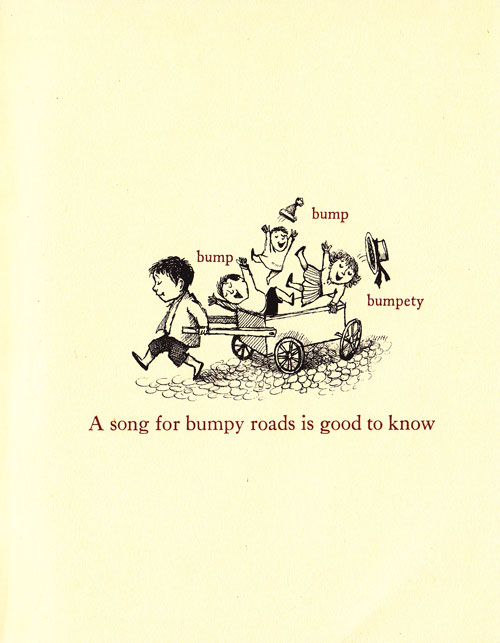
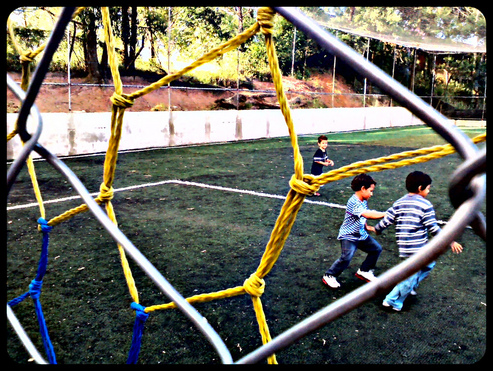
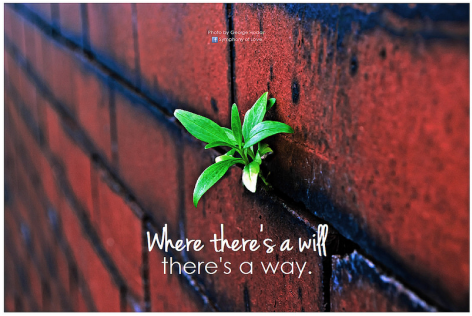
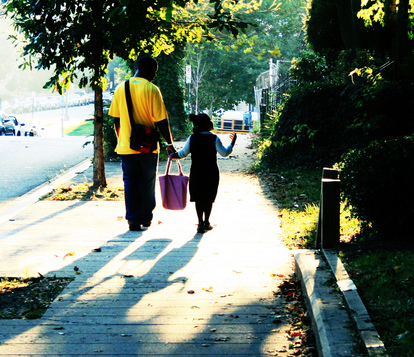
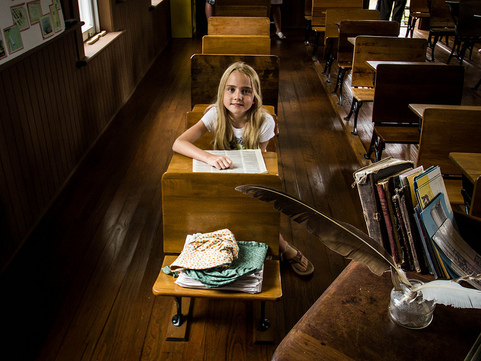
 RSS Feed
RSS Feed